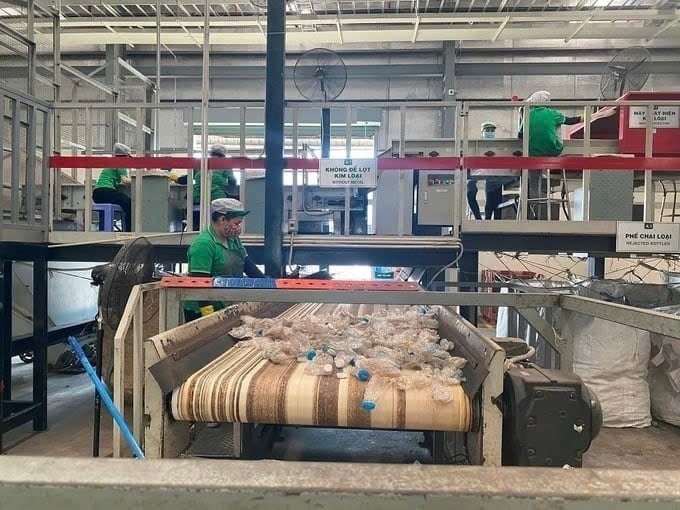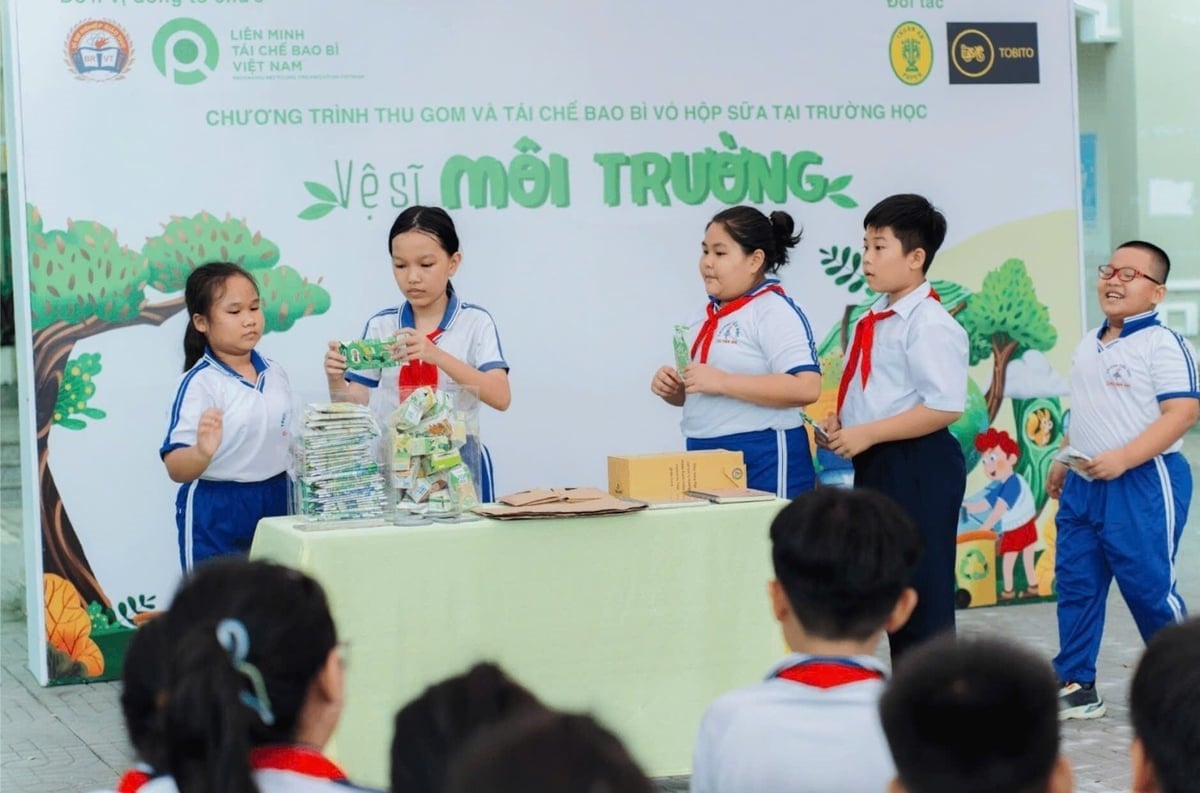December 1, 2025 | 21:11 GMT +7
December 1, 2025 | 21:11 GMT +7
Hotline: 0913.378.918
December 1, 2025 | 21:11 GMT +7
Hotline: 0913.378.918
According to the Law on Environmental Protection 2020 and Decree No. 08/2022/ND-CP, producing and importing businesses are responsible for recycling packaging and products from January 1, 2024.
On January 6, 2025, the Government issued Decree 05/2025/ND-CP amending and supplementing a number of articles of Decree No. 08/2022/ND-CP detailing a number of articles of the Law on Environmental Protection. There are many new regulations on extended producer responsibility (EPR) that businesses, producers, and importers should note. This has created challenges for businesses, making them hesitate to fully comply with new regulations.

Decree 05/2025/ND-CP, as amended, creates new challenges for businesses in implementing EPR. Photo: PRO Vietnam.
As the alliance of leading businesses in the consumer goods, packaging, retail, import, and recycling industries, PRO Vietnam is pioneering in promoting the implementation of EPR in Vietnam. The organization has supported businesses through research activities, seminars, training, and building a sustainable recycling model. In 2024, PRO Vietnam collected and recycled more than 64,500 tons of packaging of all kinds, completing 100% of the recycling volume authorized by members.
Before the regulation on recycling packaging and products was valid on January 1, 2024, PRO Vietnam actively participated in policy forums and contributed ideas to ensure feasibility during the implementation process. At the same time, the organization has connected businesses with management agencies through seminars and workshops at home and abroad to share experiences, answer questions, and seek solutions to implement EPR effectively.
In addition to supporting businesses to fulfill EPR obligations by providing information and advice and building an ecosystem of packaging collection and recycling, PRO Vietnam also connects related parties such as producers, recyclers, and private garbage collection forces.

PRO Vietnam actively implements communication campaigns to raise community awareness. Photo: PRO Vietnam.
Besides, PRO Vietnam also promotes research activities, including cooperation with the International Union for Conservation of Nature (IUCN) and the Ministry of Agriculture and Environment to pilot the waste classification model at source; collaboration with the Institute for Circular Economy Development (ICED) to conduct research and evaluate the solid waste collection and recycling system in Vietnam; and publication of relevant documents.
On the other hand, PRO Vietnam also actively implements communication campaigns to raise community awareness about 3R (Reduce – Reuse – Recycle) to encourage waste classification at source and sustainable consumption.
Expressing the wish to contribute to the effective implementation of EPR, Ms. Nguyen Thi Phuong Ha, Vice Chairwoman of PRO Vietnam, pledged to continue to accompany the Government and businesses in the implementation of EPR through contributing to building policies; consulting, sharing, and connecting; and building a sustainable collection and recycling ecosystem that can be replicated.
Translated by Thu Huyen

(VAN) The Institute of Agricultural Sciences for Southern Vietnam (IAS) marked its 100th anniversary in Ho Chi Minh City, celebrating a century of growth as a leading institute contributing significantly to Viet Nam’s agricultural development.

(VAN) An increasing number of livestock farms are using biogas generators to create a source of renewable electricity, helping to save costs and mitigate environmental pollution.

(VAN) Small changes in rice cultivation, from irrigation methods and straw collection to input management, are paving a new way for Vietnam's agriculture in the journey toward emission reduction.

(VAN) With the project of converting biogas into renewable electricity, Australia is both helping pig farms reduce their energy costs by up to 25% and contributing to environmental protection.
![Hue aims for Net Zero: [1] Initial steps from green transportation](https://t.ex-cdn.com/nongnghiepmoitruong.vn/608w/files/huytd/2025/11/28/0853-anh-6-giao-thong-xanh-hue-094717_940-153724.jpg)
(VAN) For sustainable development, Hue City is implementing many solutions to promote green transportation, which is an important initial step on the journey to building a Net Zero Hue.

(VAN) Nghe An Province, one of the localities with the largest forest area in Vietnam, is set to gain significant benefits from the implementation of forest carbon credit payments.

(VAN) Circular agriculture helps Mekong Delta farmers cut greenhouse gas emissions while boosting incomes through efficient reuse of agricultural by-products.